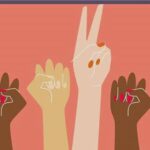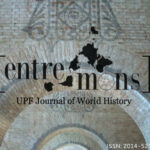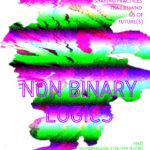 Univ. Hamburg, Forschungsgruppe „Gewalt-Zeiten“; Franziska Quaas und Theresia Raum (Web)
Univ. Hamburg, Forschungsgruppe „Gewalt-Zeiten“; Franziska Quaas und Theresia Raum (Web)
Zeit: 20.-21.04.2023
Ort: Hamburg
Anmeldung bis: 01.04.2023
Welche Bedeutung haben Emotionen für die Ausgestaltung kriegerischer Konflikte und der in ihnen zum Tragen kommenden Gewaltpraktiken? Wie sind die in den Quellen vorgenommenen Darstellungen von Emotionen in Kriegen historisch zu kontextualisieren? Die Konferenz soll neue Perspektiven auf ein wenig erforschtes Gebiet der vormodernen Militärgeschichte eröffnen. Hierbei verfolgen die Veranstalter:innen ein mithin doppeltes Ziel: 1) Wollen sie die Bedeutung ausloten, die Emotionen für die Dynamiken des Kriegsgeschehens in den Narrativen der Quellen zugeschrieben werden. 2) Wollten sie konkret danach fragen, wie Emotionen als gezielte Strategie der Kriegführung eingesetzt wurden. Entsprechend werden neben Aspekten der narrativen Darstellung von Emotionen im Krieg und ästhetischen Diskursen zu ihrer Darstellung auch Praktiken des Einsatzes von Emotionen als Ressource im Krieg und ihre Bedeutung für die Bewältigung von Kriegserfahrungen in den Blick genommen. Weiterlesen und Quelle … (Web)
Panels
- Gewalt erzählen: Emotionen und Literatur
- Attribuierung von Emotionen im Krieg
- Gewalt handeln: Emotionen als Ressource
- Emotionen zwischen Schlachtfeld und Schreibtisch
- Gewalt erfahren: Emotionen und Bewältigung

 CHORD: The Centre for the History of Retailing and Distribution; Univ. of Wolverhampton
CHORD: The Centre for the History of Retailing and Distribution; Univ. of Wolverhampton  The International Federation for Research in Women’s History – IFRWH | Federation Internationale pour des Femmes – FIRHF
The International Federation for Research in Women’s History – IFRWH | Federation Internationale pour des Femmes – FIRHF  Entremons: UPF Journal of World History (Univ. Pompeu Fabra, Barcelona)
Entremons: UPF Journal of World History (Univ. Pompeu Fabra, Barcelona) Netzwerk „Gender Differences in the History of European Legal Cultures“
Netzwerk „Gender Differences in the History of European Legal Cultures“  Univ. of Luxembourg/Luxembourg Centre for Contemporary and Digital History/Europe Direct
Univ. of Luxembourg/Luxembourg Centre for Contemporary and Digital History/Europe Direct  isaScience 2023, University for Music and Performing Arts Vienna (mdw)
isaScience 2023, University for Music and Performing Arts Vienna (mdw)  Vereinigung bildender Künstlerinnen Österreichs (VBKÖ)
Vereinigung bildender Künstlerinnen Österreichs (VBKÖ)